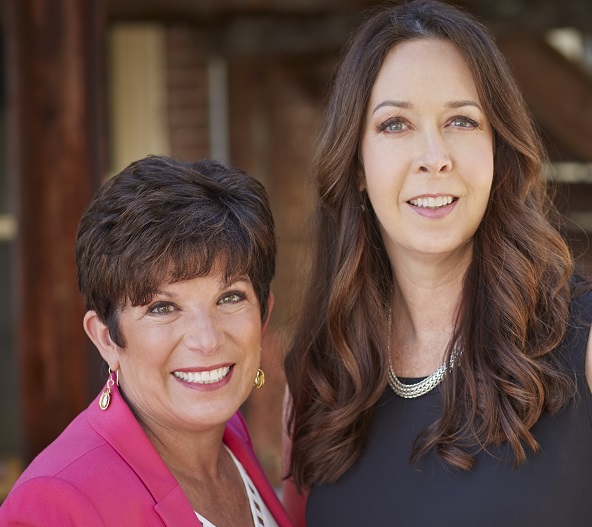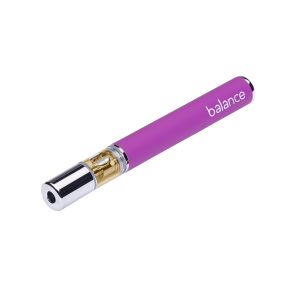Cannabis dispensaries prepare for expanded business if recreational use ballot question passes
As voters are preparing to vote on a constitutional amendment ballot question that would let adults 21 and older use cannabis recreationally, medical marijuana dispensaries are readying their business plans to expand their customer base.
A Washington Post University of Maryland poll found earlier this season that about 73% of voters favor legalizing the recreational use of cannabis for those over 21 by next July. Should the question pass, Maryland would still need to work out details of implementation, but the language calls for it to be effective July 2023 if that is done.
Brandon Barksdale is co-CEO of Remedy Maryland, which owns dispensaries in Baltimore and Columbia. He said their flagship location in Columbia has expanded enough with medical marijuana demand that they needed to move.
On Dec. 1, the retail location has plans to have a grand opening for a new 10,000 square foot space, with a superstore offering a “store within a store” concept that allows different brands to showcase their unique offerings. The plan is for the new location to offer an exciting retail experience should recreational use be added.
“Someone could come in for the very first time and get educated and take a tour across the brand partners that we work with, and suppliers in Maryland and get a really robust understanding of what’s available, of the different cannabis attributes that drive experience,” Barksdale said. “We want this journey to be fun and exciting for the consumer and patient.”
The goal will be to make people feel welcome for an exploratory experience, possibly starting with microdosing.
When would recreational cannabis come to consumers?
But even if the constitutional amendment passes, they’ll have to wait for the state to act – it requires the General Assembly to pass legislation regarding the use, distribution, possession, regulation and taxation of cannabis before people could use and possess cannabis recreationally. Barksdale is hopeful that will take place close to July 2023, the earliest date outlined in the proposed constitutional amendment.
He said July is a good assumption because Maryland has been diligent in how it rolls out new programs across the state, including when medical marijuana was first introduced. Other states have taken years to implement adult recreational use, but he doesn’t expect that to be the case here.
“Because the medical market in Maryland was managed so well and so maturely, I just imagine they would bring that same level of guidance toward an adult and recreational market that would allow it to move a lot faster.”
“If it’s not completely operational for adult use (by July), we will have very clear guidance on when it will be by then,” he said.
The House Cannabis Referendum and Legalization Work Group has been formed to help tackle these issues, and issued a report in October detailing how staff from the Maryland Medical Cannabis Commission will merge into the Alcohol and Tobacco Commission if the ballot question passes.
Dispensary owners are following the issue closely to see how it will roll out, including issues like which agency will handle compliance, what taxes will need to be paid, and any dosage changes that could come to medical guidelines. These factors will help determine if someone wants to access cannabis through medical or recreational use.

Dr. Leslie Apgar, a board certified OB/Gyn who is the co-founder and medical director of Greenhouse Wellness, a five-year-old dispensary in Ellicott City, said she could see implementation taking longer as the state addresses complicated processes.
“I think it will be after July, tentatively I’d say 2024,” Apgar said. “If it’s earlier than that I will just be delighted.”
Reaching new consumers
A women-owned firm, Apgar’s company is preparing to help women in particular if they have questions about recreational cannabis. Greenhouse Wellness is designed to offer an intelligently designed service with a doctor available on demand and wellness consultants who understand the science of cannabis. Then, they decided to start a product line themselves called Blissiva, designed for women, by women.
“People don’t want to get high, they just want to feel better,” Apgar said about their products.
Because of their focus, she said she didn’t think the patient experience would change much at all if recreational use is added. That’s because the goal of cannabis they are offering is to create balance and treat symptoms, and most recreational users are interested because they are addressing something like PTSD, anxiety, or a sleeping disorder.
“They’re not really aware of it, but truly they are treating something,” she said.
Apgar expects more women would be interested in learning about recreational use because the barriers would be removed, and they could seek care for themselves or the people for whom they care.

Using cannabis for menopause, replacing other drugs
A survey Blissiva conducted found more than 6 out of 10 women say they’re canna-curious and are more likely to consider using cannabis if it’s doctor-recommended. About 17% were interested in it as a solution for menopausal symptoms. Apgar, who practiced as an OB/GYN for many years before becoming an entrepreneur, said women’s menopausal symptoms are often caused by anxiety and sleep disorders during that time, and their products have helped women.
Additionally, Apgar has used cannabis to wean hundreds of patients off of opioids. She published a case study of one patient who had surgeries, used opioids, and weaned off before and after medical marijuana was available. The process with marijuana was easier, she said, because the THC in the drug made the narcotics stronger and last longer, and the CBD helped diminish cravings.
She has also used it to help patients stop using benzos and sleep agents.
“It’s not a gateway drug, it’s an off-ramp drug,” Apgar said.
They Apgar and Barksdale said patient education would be key as cannabis becomes more widespread.
Barksdale said he will emphasize education, quality, product availability to help consumers.
Apgar said dispensaries will continue to do extensive testing to rule out things like Fentanyl, heavy metals, and pesticides. The hope is that the black market will be disrupted.
“Your buddy down the street may give you a deal, but at what cost? Can you put a pricetag on your health or on your well-being?” she said.

Meg Tully has been covering Maryland politics for more than five years. She has worked for The Frederick News-Post, where she reported during the General Assembly session in Annapolis. She has also worked for The (Hanover) Evening Sun and interned at Baltimore Magazine. Meg has won awards from the Maryland-Delaware-D.C. Press Association for her state and county writing, and a Keystone Press Award for feature writing from the Pennsylvania Newspaper Association. She is a graduate of Franklin & Marshall College in Lancaster, Pennsylvania.

